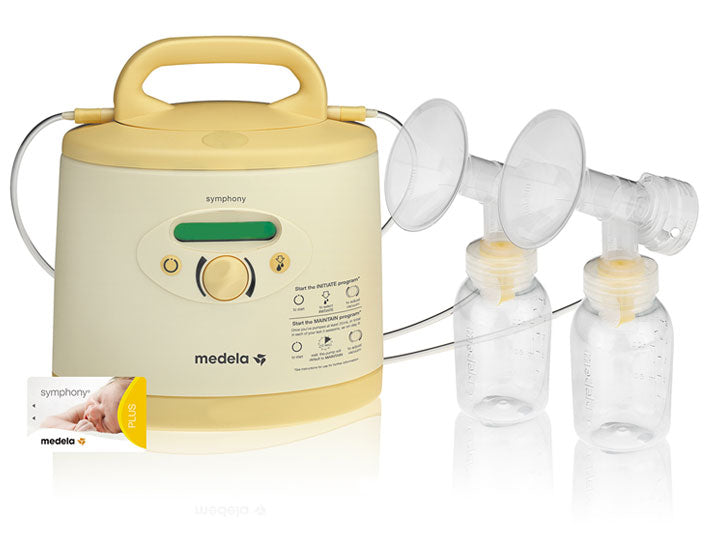Tips to Relieve Engorgement

What is Engorgement?
What is Normal? It is normal and expected for your breasts to become larger and to feel heavy, warm, and tender between the third and fifth day after your baby is born. These breast changes are due to an increase in milk volume as well as an increase in blood and lymph fluids flowing to the breast. The changes signal the "incoming" of your more mature milk, and are a positive sign of good breast function. If your baby is nursing well, this condition resolves in about 24-48 hrs. Frequent nursing from birth (every 2-3 hours or 8-12 x or more in 24 hours) helps reduce the tenderness and fullness of your breast.
Normal breast fullness can lead to engorgement if your baby is not nursing often enough and/or not removing milk effectively. Engorged breasts become very full, firm, hard, and the skin can be red, taut and shiny. Some mothers have a low-grade fever. The breast may become so swollen that the nipples flatten making it difficult for your baby to latch.
Other causes of engorgement:- Mother and baby are separated and mother is not pumping often enough
- Mother received IV fluids causing excessive edema
- Supplementation of baby without replacement pumping
- Baby's latch is not deep enough to enable adequate milk removal
Tips for relieving engorgement:
- Nurse very frequently--a minimum of 8 times in 24 hours, waking the baby by the third hour if necessary. Nursing even more often, every 1-2 hours, is helpful.
- Apply heat to the breast for 5-10 minutes before nursing. Using warm, moist compresses or taking a warm-hot shower with gentle breast massage can help the milk flow.
- Apply cold compresses to your breasts after feedings for 15-20 minutes. Cold can reduce swelling and inflammation. A bag of frozen peas or corn wrapped in a cloth molds easily to the breast and can be reused. Do not apply ice bags directly to your skin.
- Massage firm, lumpy areas of your breasts with your fingertips while the baby is nursing. Gentle massage or breast compressions can help with milk drainage.
- A well-fitted, supportive nursing bra may make you feel more comfortable. Avoid underwire bras during this time.
- Ibuprofen (Motrin or Advil) can help alleviate both pain and swelling. Discuss with your healthcare provider before taking any medication.
- Some mothers find cold cabbage leaves can be helpful to reduce moderate to severe engorgement. It is not clear if there is a substance in the leaves that reduces swelling or if it is simply the cool temperature of the leaves that provides relief.
- Wash and core a head of raw green cabbage and place in the refrigerator.
- Just before using, crush the veins of the leaf with a rolling pin.
- Place several leaves over your breasts leaving the nipple exposed. Your bra will hold them in place.
- Leave cabbage leaves in place for at least 20 minutes.
- Discontinue leaves when engorgement has improved.
What if my breasts are so hard that my baby has trouble latching?
-
Soften the areola with reverse pressure softening (RPS). This process can move the excess fluid from the areola back into the breast.
-
With your hands slightly curved, place the fingertips of your middle three fingers on either side of the base of your nipple where it touches the areola.
-
Gently push inward toward the chest wall and hold for 30-50 seconds. During RPS your areola softens, the nipple protrudes more, and milk will often start to drip.
-
Once the areola is softer and pliable, latch your baby deeply onto your breast.
-
Soften the areola by removing some milk using hand expression. Dr. Jane Morton, clinical professor at Stanford University School of Medicine, has developed a video demonstrating how to hand express your milk.
Watch Video: Hand Expression of Breastmilk
-
Use a manual or electric breast pump on a low, comfortable setting to remove a small amount of milk, soften the areola, and lengthen the nipple before latching.
- A well nursing baby is better than a pump for effectively removing milk from the breast. Allow/encourage your baby to nurse frequently.
- If your baby takes only one breast and does not want to nurse from the other tight, firm breast, you can hand express or pump to relieve the pressure. Removing enough milk to just soften the breast tissue, can provide relief without resulting in overproduction.
- Unrelieved prolonged engorgement can decrease your milk supply. If breasts are firm and not softened after nursing, use your electric pump and remove the milk that flows quickly and easily. A hospital grade, rental pump is usually the best choice for this situation.
- If you find that you are relying on pumping to manage your engorgement, and/or your baby continues to have difficulty latching, please contact a lactation consultant. A consultant can help you to develop a strategy that will work for you and your baby during this engorgement phase.
The Pump Station & Nurtury® has decades of experience providing new families with outstanding educational, breastfeeding and baby care support, including products and classes which can make all the difference to you and your baby. To see a list of some of the essential products that our Lactation Professionals have recommended, click Essential Breastfeeding Products
| Products to Help Relieve Engorgement | ||
|---|---|---|
 Ameda Comfortgels Hydrogel Nursing Pads Ameda Comfortgels Hydrogel Nursing Pads
|
 Rent Hospital Grade Pump |
|
| Other Helpful Items | ||
|---|---|---|
 Motherlove Nipple Cream |
 Medela Harmony Manual Breast Pump |
Haakaa Manual Pump |
ALSO SEE: Plugged or Blocked Milk Ducts and Mastitis
And other Breastfeeding and Baby Care Help Topics

